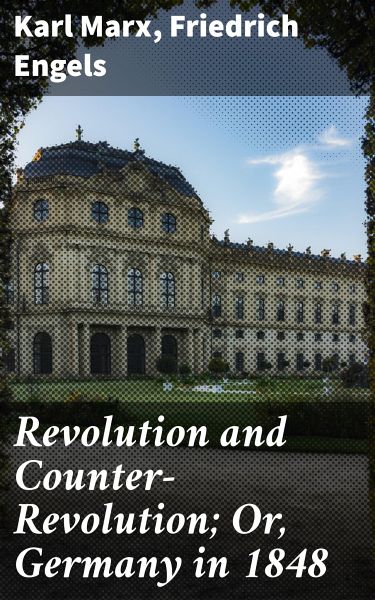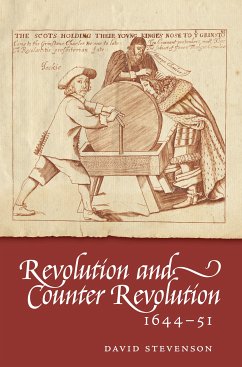
Revolution and Counter-Revolution; Or, Germany in 1848 (eBook, ePUB)
Enriched edition. Unraveling Revolutionary Philosophy: Insights from Marx and Engels in 1848 Germany
Kommentar: Silvershaw, Rowan / Redaktion: Good Press; Aveling, Eleanor Marx
Versandkostenfrei!
Sofort per Download lieferbar
1,99 €
inkl. MwSt.
Weitere Ausgaben:

PAYBACK Punkte
0 °P sammeln!
Revolution and Counter-Revolution; Or, Germany in 1848 is a profound exploration of the turbulent socio-political landscapes of 19th century Europe, skillfully curated to reflect the dynamic spectrum of revolutionary thought. The anthology engages with themes of class struggle, political upheaval, and the dialectic of social change, offering a diverse compilation of treatises and manifestos. Notable pieces investigate the political tectonics of 1848 Germany, embodying varied literary styles, from incisive analysis to impassioned rhetoric, thereby capturing the zeitgeist of a pivotal era across...
Revolution and Counter-Revolution; Or, Germany in 1848 is a profound exploration of the turbulent socio-political landscapes of 19th century Europe, skillfully curated to reflect the dynamic spectrum of revolutionary thought. The anthology engages with themes of class struggle, political upheaval, and the dialectic of social change, offering a diverse compilation of treatises and manifestos. Notable pieces investigate the political tectonics of 1848 Germany, embodying varied literary styles, from incisive analysis to impassioned rhetoric, thereby capturing the zeitgeist of a pivotal era across the continent. The anthology brings together seminal works of influential thinkers such as Karl Marx and Friedrich Engels, whose contributions underscore the vibrant exchange of revolutionary ideas. Their writings encapsulate both the rigors of Marxist theory and the broader currents of socialist aspirations during this period. Written amidst the cresting waves of industrialization and nation-building, these works reflect the zeitgeist and fervor of mid-19th-century Europe. The anthology also aligns with the broader intellectual movements of the time, providing historical and cultural context that enriches the reader's comprehension of the age. For the discerning reader, Revolution and Counter-Revolution; Or, Germany in 1848 offers a compelling journey through a transformative epoch. This collection's breadth provides a singular opportunity to experience collisions of ideology and the resonance of revolutionary fervor across different voices. Students, historians, and general readers alike are invited to explore this mosaic of perspectives for its rich educational insights and the robust dialogue it frames within the historical discourses of revolution and reform. In this enriched edition, we have carefully created added value for your reading experience: - A succinct Introduction situates the work's timeless appeal and themes. - The Synopsis outlines the central plot, highlighting key developments without spoiling critical twists. - A detailed Historical Context immerses you in the era's events and influences that shaped the writing. - An Author Biography reveals milestones in the author's life, illuminating the personal insights behind the text. - A thorough Analysis dissects symbols, motifs, and character arcs to unearth underlying meanings. - Reflection questions prompt you to engage personally with the work's messages, connecting them to modern life. - Hand-picked Memorable Quotes shine a spotlight on moments of literary brilliance. - Interactive footnotes clarify unusual references, historical allusions, and archaic phrases for an effortless, more informed read.
Dieser Download kann aus rechtlichen Gründen nur mit Rechnungsadresse in A, B, BG, CY, CZ, D, DK, EW, E, FIN, F, GR, H, IRL, I, LT, L, LR, M, NL, PL, P, R, S, SLO, SK ausgeliefert werden.













